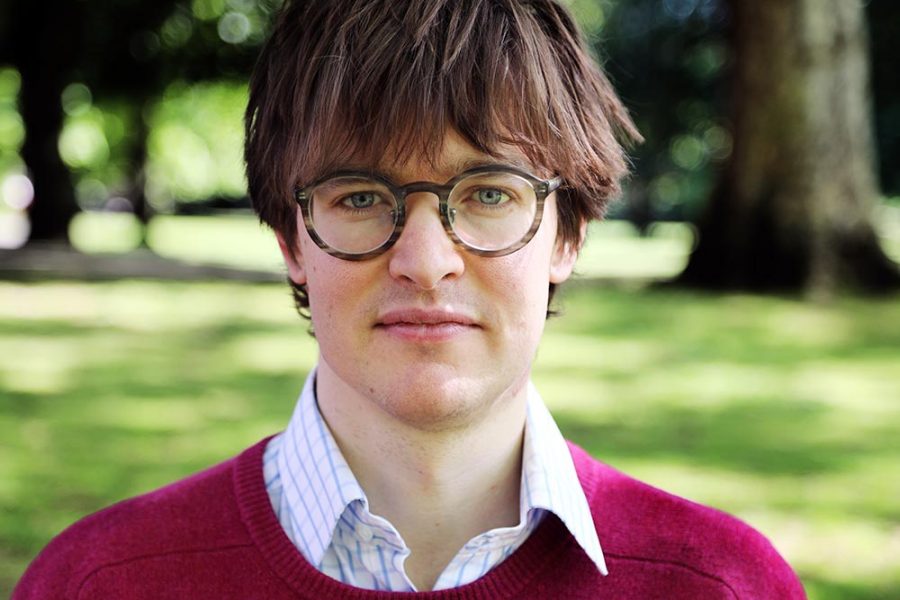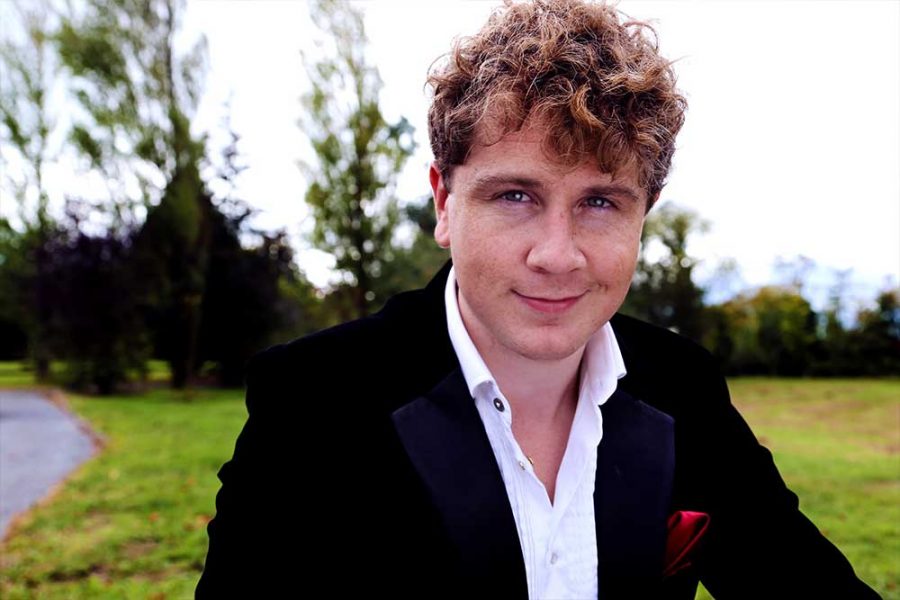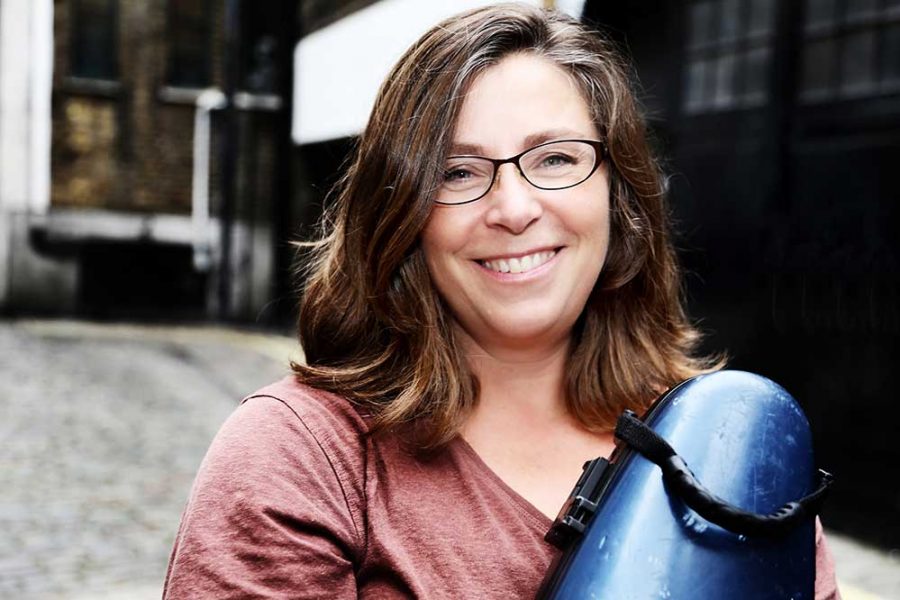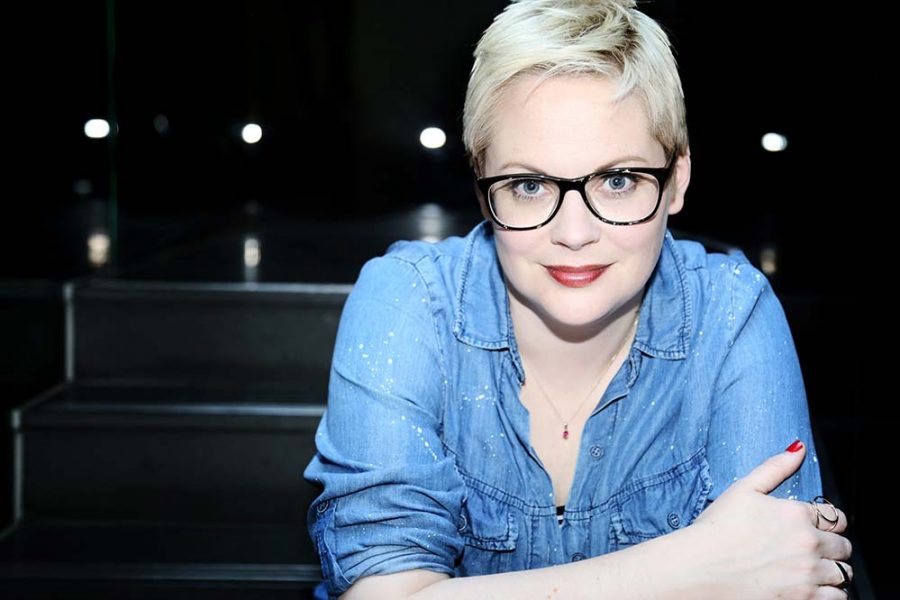In Conversation with Maxim Vengerov

May 2018
Words by
Emer Nestor
Photos by
Frances Marshall
A true luminary of the Classical music scene, Maxim Vengerov is regarded by many as one of the finest string-players of our time. As a soloist, conductor, recording artist, and teacher, Vengerov has thrilled audiences the world-over with his technical mastery, poetic facility of interpretation, and unwavering passion for his profession. We met with the charismatic Grammy award winner to chat about his career, the reality of the ‘child prodigy’ label, performing on a Stradivari, and his foray into the world of conducting.
Initially, I wanted to become a conductor...but due to the fact that I had to start studying an instrument, I decided to play the violin. I wanted to perform for people."

Tell us about your early introduction to music.
When I was a kid, my mother was a choir conductor and director of an orphanage. She led a choir of 500 children and I grew up with a wonderful joy for music. My mum was a mother for everyone. My father was an oboist in the Philharmonic Orchestra and I learned about the orchestra from the inside out. It was a very natural choice for me to become a violinist. Initially, I wanted to become a conductor—a wish shared by my mother—but due to the fact that I had to start studying an instrument, I decided to play the violin. I wanted to perform for people. I didn’t want to be like my father, sitting in the oboe section hidden from the audience.
Growing up in Novosibirsk, what did you enjoy most about its musical culture?
It was amazing! One thinks of Novosibirsk as the coldest place on this planet—a place of exile, deserted and associated with stories of the great writers. However, it evolved into a cultural paradise after WWII. They built a theatre of ballet and opera for 3000 people [Novosibirsk State Academic Opera, and Ballet Theatre], which is now one of the biggest in Europe. It has a wonderful acoustic and is home to a large opera company. Recently, a new symphony concert hall was added that hosts a great variety of festivals. So, the life and culture is quite amazing there. Yes, there were dark years after the collapse of the Soviet Union, but I think that Novosibirsk is once again back on the map. The Symphony Orchestra is just fantastic and one of the best in Russia today.
How did your lessons with Zakhar Bron shape you into the musician you are today?
Zakhar Bron was a very important professor of mine. I studied with him for five and half years but I also had another teacher beforehand. Her name was Galina Turchaninova and she was the one who taught me to play the violin. When I came to Professor Bron, I was able to play concertos by Mendelsohn and many others. He was a different teacher and had very strong views on music. Professor Bron had important responsibilities and put a great amount of pressure on me, which was a good thing. It made me strong…I needed the push.
For him, a musician needs to be ready to be a fighter…to be strong. That is why nothing overwhelms me today. I came across so many challenges as a child. Bron taught me a very important lesson: if you want to become a general in life, you must become a good soldier. And in my lessons I really needed to obey him. At times this was quite challenging for me because I had to let go of my opinions about music. I always had strong opinions, which Bron did not tolerate at that time. Looking back, I think it was a good thing to have a teacher like this. If I was permitted to do anything I wanted, then I would not be as flexible as I am today.

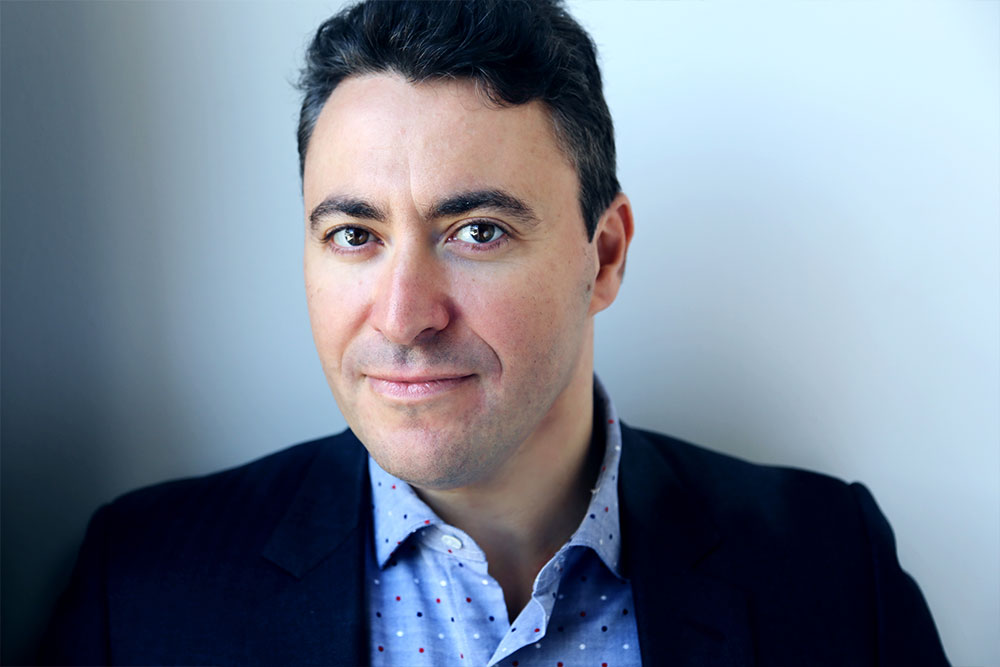


Music has the ability to stay with people for a long time…you can plant a seed in their existence, in their soul, that will grow into something else."

What are your thoughts on the concept of the ‘child prodigy’?
Growing up in Siberia, I knew that to play the violin beautifully did not mean that you had accomplished your goal. Our examples were those such as Rostropovich—a conductor and cellist who studied with Shostakovich. These were great geniuses, so there was a long way to go!
Even though I had achieved great successes that made my parents and teacher very happy, I knew that learning was a life-long process. Today, I still have the same humble attitude. My mentor and teacher studied with Rostropovich. He looked up to Shostakovich who in turn looked up to Mahler. This continuation of the root and source is very strong and I should never be detached from it. However, this process needs to be controlled…you must be careful not to overdo things and to pace yourself.
From very early childhood, I knew that my path would be violin, then conducting, and then composing…for as long as I live. Professionally, I always wanted to have a profound knowledge of each of the areas in which I worked. I would always take the time to make this happen
I’m going to study singing and Italian so that I can conduct Italian opera and work with singers…then one day, hopefully composing. There’s never an end and that’s the joy. When I learn something new, I always want to share it with my students and people…it is an ongoing process.
You began your career as a touring virtuoso at quite a young age – what challenges did you face, and what advice would you give to young violinists who are embarking on a similar lifestyle?
My advice is mainly to the parents: every child has a different psychology and different strengths for the event. Overnight success can be harmful for a young unprotected child, and the greatest thing against that is obtaining knowledge. It is important to reinforce the foundations because you can never be strong enough. If you always keep studying and being curious then the possibilities for learning are endless…not only in music, but in life too. We must remain humble for the greatness that we have in music. This is especially true of today’s turbulent world. Sometimes I can see people coming to concerts who are troubled by inner emotions, so for them, listening to a concert is a source of peace. Music has the ability to stay with people for a long time…you can plant a seed in their existence, in their soul, that will grow into something else.
In terms of the Russian classical repertoire, do you identify with the works of any composer in particular?
Tchaikovsky, Shostakovich, and Prokofiev in particular, but I’ve never limited myself to Russian repertoire. I’m equally devoted to Viennese classics and German composers such as Brahms, Chopin, Beethoven, and Mozart. Mozart is my soul. When I play Mozart, I feel so natural. With Mozart I feel so much at home. With Beethoven I have to become an actor. Equally, I now feel very close to French music, especially Ravel, Poulenc, and Fauré. There’s so much to learn from this repertoire.
You have played on a variety of superb instruments over the course of your career—is it important to experiment with different soundscapes rather than sticking to one instrument?
Of course…I could write a book on my relationship with my instrument. When I was ten years old, I received a Stradivari from the Russian State collection. It was the ¾ size—a beautiful instrument. Stradivari was a genius instrument maker so I thought that I would produce a magical sound with my first bow against the string. The outcome was quite shocking…this instrument didn’t sound at all. I said “this instrument is terrible”. Then Professor Bron said “to play Stradivari you must talk to it, you have to know, you have to adapt, to yourself. The Stradivari is like a cat. It doesn’t come to you; you must come to it”. This became a turning point in my musical life. I started to search for my own voice in music. At first I tried to connect with the instrument. Then I tried to hear the sound before it actually came into the world. This is what I’m always teaching students. Before they play one note, they have to imagine the sound.
I’m very lucky as I’ve played hundreds of precious instruments including many Stradivari, Guarneri del Gesù, and Guadagnini, which taught me a lot of colour. So every time I take an instrument in my hands, I look at it and immediately know how the instrument is going to sound.
Today I mainly play on my own instrument, Stradivari (built in 1727), which is a legendary instrument that belonged to Rodolphe Kreutzer—a contemporary of Beethoven. I also play other instruments to provide colouring and to optimise the instrument. But when you take the Strad, for example, you need time. You need to be a good player to work on it…to work the overtones. Every time I take the instrument, it has a resistance. It’s a little like Formula 1…they optimise the cars, and violinists have to optimise the high-end violins.

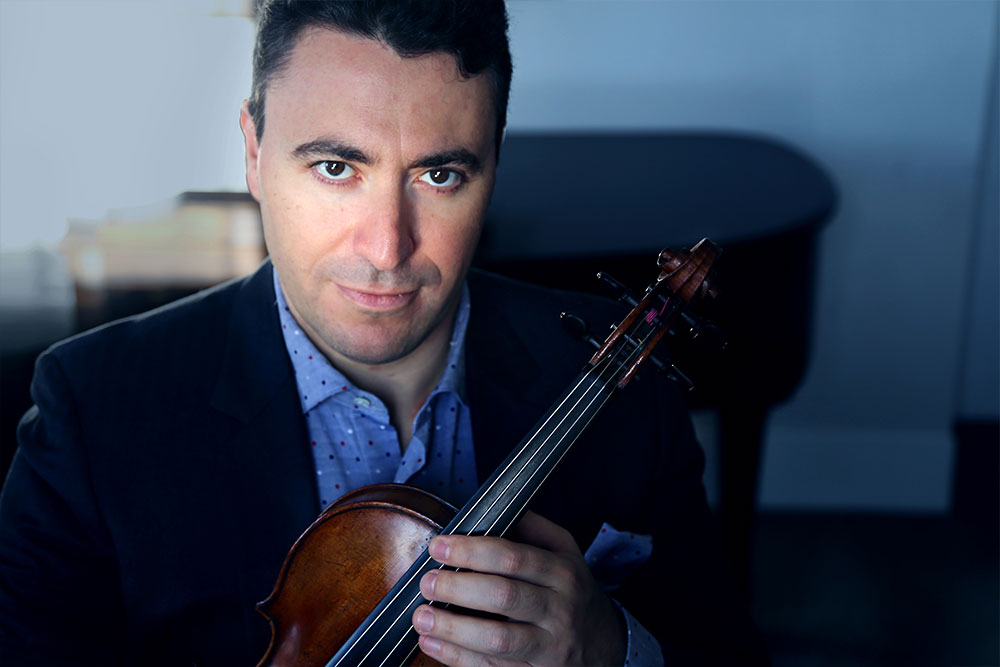


Are you concerned about the prospect of having such a valuable instrument stolen?
I try not to think about it too much. However, if the instrument is ever taken away, it can never be sold to anyone because it’s so famous. The worst that can happen is that they keep it or they destroy it. But who wants to think about this. There is no point in stealing an instrument. I always keep it with me. The instrument is my baby. It’s never left on its own.
What motivated your decision to study the viola, and record Walton’s Viola Concerto with Mstislav Rostropovich?
Rostropovich called me and asked me to record the Britten Violin Concerto. I did so with the London Symphony Orchestra. Then when we decided to complete the CD, we needed another concerto by a British composer. I looked through many different scores and finally came across Walton’s Viola Concerto, which I loved! It’s such an amazing romantic work of the young Walton. The model for this piece was written as a violin concerto by Prokofiev. I immediately took up the viola and after three months I recorded it with maestro Rostropovich…we won a Grammy for it.
How did you find the transition between the two instruments?
At that time it was very interesting. I learned many different colours from the viola. All of a sudden I could imitate the sound of the cello with its very deep sonority, which I missed on the violin. Curiously enough, after playing the viola, I would come back to the violin and feel completely different about my colouring. It became richer and full of sonority and that’s thanks to the viola.
Do you think the viola is an underrated instrument?
The viola is a very important instrument in the orchestra. It connects the two different worlds of sopranos and basses. The viola is very connected to the sound of the wind instruments…their colours merge together…and sometimes with the horns too. If you ignore the viola, you miss out on a lot of the harmonies, as they are placed in the middle of the chord. If you ignore that part of the orchestra, then there are no Brahms’ symphonies, no Beethoven symphonies, even Mozart and Mahler.
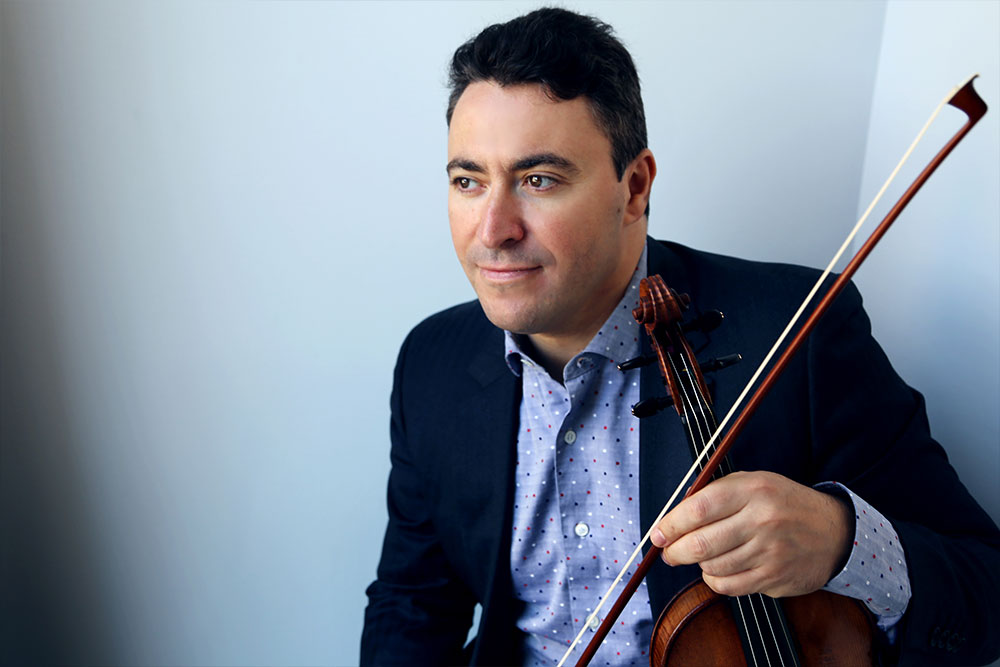


You took a break from performing for a few years—has your approach to playing and preparing for concerts/recordings changed since then?
Nothing has changed. I became more experienced and more knowledgeable. I learned through teaching. These days, if I am preparing for a concert, I no longer have to practice regularly…I practice to warm up or learn a new piece. I practice when I have to play. You need blood in your fingers for playing, and blood in your brain for conducting.
Why did you decide to take up the baton and train as a conductor?
I needed to reinforce my knowledge of violin repertoire. I fell short of experience when I was playing a Brahms concerto. I was always curious as to what the orchestra was doing but never profoundly. Every time I conduct a symphony by those such as Shostakovich and Tchaikovsky, for example, I come back to play Shostakovich or Brahms. I change my interpretations naturally. You take the experience from the orchestra that you have conducted back to the score, and you view the music within a wider picture. The music becomes a richer, more fulfilling experience.
Tell us about your conducting ethos, and how your mentor Yuri Simonov influenced your style.
I have had the great experience of training with Yuri Simonov, who comes from the Leningrad school of conducting and the Rabinovich school. Simonov served as the chief conductor of the Bolshoi Opera for 16 years. He has the greatest experience in opera. I have been studying with him for over 5 years now. He’s extending the course of studying opera which is a great opportunity for me to get an in-depth knowledge of the profession of conducting. His experience is absolutely priceless. He is old-school.
What is your philosophy of teaching, and what do you try to pass on to your students?
The best teachers have accomplished a great deal themselves but their students are even greater than them. One of the greatest examples of this is George Enesco. He was a brilliant, violinist, pianist, composer, conductor and teacher. As a professor he excelled and made students, such as Menuhin, better than him. For me, this is the ideal model of what musicians should be.
I practice to warm up or learn a new piece. I practice when I have to play. You need blood in your fingers for playing, and blood in your brain for conducting."

To find out more about Maxim Vengerov’s forthcoming schedule see:
www.nfbm.com/maxim-vengerov
All images displayed in this article are subject to copyright.
Share this article


